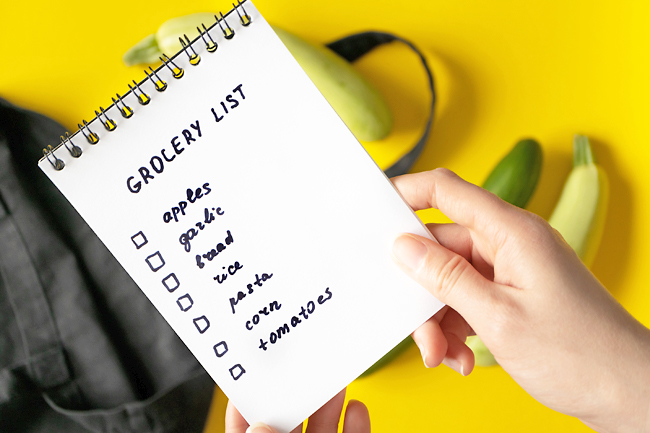NEW YORK (AP) – If you’ve noticed that you’re paying more than before for the same amount of groceries, you’re not the only one.
Inflation is easing slightly, but grocery prices are still high.
“When inflation rises, it reduces people’s ability to afford groceries by increasing the overall cost of goods,” said analyst for WalletHub Cassandra Happe.
Unlike some other items, you can’t just stop buying groceries when they get pricey.
There’s nothing you can do about inflation, but you can find ways to save on groceries so they don’t heavily impact your wallet or your eating habits. These include budgeting and buying in bulk.
Here’s are some expert recommendations for saving on groceries:
TRACK CURRENT SPENDING
Making a budget is a key to keeping grocery spending under control, and the first step is to track how much you’re already spending.
Start by reviewing how much you have spent on the last few times you’ve gone grocery shopping, recommended Deputy Editor for AARP Bulletin David Brindley.
If you don’t keep receipts from past grocery runs, try looking at your bank account statement and adding up the grocery charges.
Once you know how much you spend on groceries, set a goal, for example, staying within a specific budget or reducing your spending.


REVIEW WHAT YOU ALREADY HAVE
You need a plan, but before you make one, ensure you know what you currently have in your fridge and your pantry. Personal finance expert and social media manager Sarah Schweisthal recommended taking everything out and making an inventory so you don’t buy duplicates of things you already have on hand.
Brindley also recommended planning to cook multiple meals with similar ingredients, which saves money and also cuts down on food waste.
MAKE A PLAN
Once you’ve tracked your spending and inventoried what you already have, the next step is to make a plan. Write down the items you’re looking to buy and your estimated cost, making sure you stay on budget.
Meal planning for the week or month can be a good way to stay on top of your spending, Schweisthal said.
Going up and down the aisles can sometimes make you crave things that you haven’t planned for, like a snack or a new dish.
If you foresee that it’ll be hard for you to stick to your list, include some flexibility in your plan, such as allotting a specific amount to buy snacks or a random item you see at the check-out line.
“I think having flexibility in a plan actually helps you stick to it more,” Schweisthal said.
Making a plan can be as simple as writing down a list on paper or in your phone’s notes app.
INVOLVE YOUR FAMILY IN SAVING
If you are in charge of buying groceries for your entire family, it can be beneficial to include them in your grocery budgeting routine.
Since buying in bulk can be very cost-effective. Brindley also recommended that you team up with a friend or a family member to buy specific items in bulk and share the discount. – Adriana Morga


